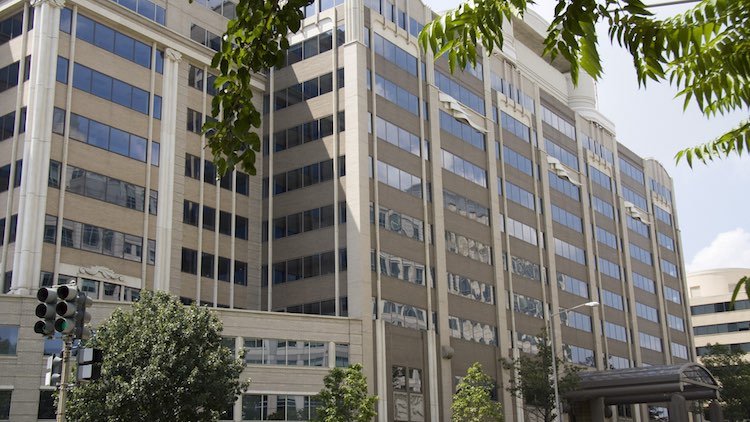ISPs Praise Pai's Title II Move

The smarter way to stay on top of broadcasting and cable industry. Sign up below
You are now subscribed
Your newsletter sign-up was successful
ISPs were swift with their applause over FCC chairman Ajit Pai's announcement that he would be rolling back Title II reclassification of internet access, something they once called the "nuclear option" and sued to overturn in court.
They mixed their thanks with pledges to keep the internet open and suggestions that Congress needed to settle the matter of the FCC's authority.
“We welcome Chairman Pai’s announcement that he intends to reverse the prior FCC’s flawed decision that forced heavy-handed public utility regulation on today’s dynamic internet networks," said NCTA president Michael Powell. "Restoring the FCC’s traditional bipartisan ‘light-touch’ approach will reestablish a better framework to advance consumer protection and to support the continued growth and expansion of internet networks throughout America."
As FCC chair, Powell was instrumental in furthering that "light-touch" policy.
Related: Ajit Pai's Speech Draws Immediate and Passionate Reaction
“Reversing the classification of internet services will not change the commitment of cable ISPs to provide an open internet experience for our customers," he said. "We do not block, throttle or otherwise interfere with consumers’ desire to go where they want on the internet. A more modern regulatory framework will not change our commitment to such practices. But consumers are best served by policies that encourage ongoing investment and innovation especially as technology changes, as network demands increase, and as we focus on closing the digital divide in every community across America.
“While we applaud and support Chairman Pai’s call to correct past mistakes through the rulemaking process, we are mindful that only Congress has the power to conclusively settle this debate and provide the FCC with clear authority to enforce specific open internet principles. We renew our support for bipartisan legislation that will end this decades-old legal controversy and permanently enshrine enforceable open internet principles in statute. Such action will allow everyone to move beyond endless partisan debate and allow our industry to focus on building the world-class networks that creates jobs and advances American prosperity.”
“Charter’s support for an open internet is an integral part of our commitment to deliver a superior broadband experience to our customers," said Charter chairman Tom Rutledge. "That will never change. FCC Chairman Pai today signaled a welcome and necessary step toward returning to the regulatory framework embraced by Democratic and Republican FCC’s for the past two decades. This framework allowed and will continue to allow the open internet to flourish, yet will also spur investment in and the deployment of the next generation of broadband.”
The smarter way to stay on top of broadcasting and cable industry. Sign up below
“AT&T continues to support the fundamental tenets of net neutrality. And we remain committed to open internet protections that are fair and equal for everyone," said AT&T CEO Randall Stephenson.
“The bipartisan, light-touch regulatory approach that Congress established at the internet's inception brought American consumers unparalleled investment in broadband infrastructure, created jobs and fueled economic growth. It was illogical for the FCC in 2015 to abandon that light-touch approach and instead regulate the Internet under an 80-year-old law designed to set rates for the rotary-dial-telephone era.
“We applaud FCC Chairman Pai’s initiative to remove this stifling regulatory cloud over the internet. Businesses large and small will have a clearer path to invest more in our nation's broadband infrastructure under Chairman Pai's leadership. And we are hopeful that bipartisan agreement can be reached on principles that protect internet openness, consumer choice and vibrant competition."
Verizon's challenge to earlier, non-Title II based FCC Open Internet rules, arguably started the regulatory slide toward reclassification. The company argues Congress needs to step in and resolve the issue.
“Verizon supports net neutrality policies that protect an open internet without discouraging competition and slowing job-generating investments," Verizon senior VP and deputy general counsel Kathy Grillo said. "We continue to believe that the right answer is for Congress to move forward on legislation that once and for all adopts clear, enforceable, and strong net neutrality protections. We stand ready to work with the FCC, Congress and the industry on an approach that provides strong consumer protections while also allowing companies the flexibility and certainty to innovate, increase investment and compete aggressively.
“We also support Chairman Pai’s proposal to roll back Title II utility regulation on broadband. Title II (or public utility regulation) is the wrong way to ensure net neutrality; it undermines investment, reduces jobs and stifles innovative new services. And by locking in current practices and players, it actually discourages the increased competition consumers are demanding."
"We fully support reversal of Title II classification, a 1930s statute that is outdated and harms consumers by creating a cloud over broadband investment decisions and innovation. Chairman Pai's proposed reversal of Title II does not mean there will be no open Internet protections, but rather creates an environment where we can have a fresh constructive dialogue," said Comcast CEO Brian Roberts.
"To be clear, we continue to strongly support a free and open Internet and the preservation of modern, strong, and legally enforceable net neutrality protections. We don’t block, throttle, or discriminate against lawful content delivered over the Internet, and we are committed to continuing to manage our business and network with the goal of providing the best possible consumer experience.”
Contributing editor John Eggerton has been an editor and/or writer on media regulation, legislation and policy for over four decades, including covering the FCC, FTC, Congress, the major media trade associations, and the federal courts. In addition to Multichannel News and Broadcasting + Cable, his work has appeared in Radio World, TV Technology, TV Fax, This Week in Consumer Electronics, Variety and the Encyclopedia Britannica.

